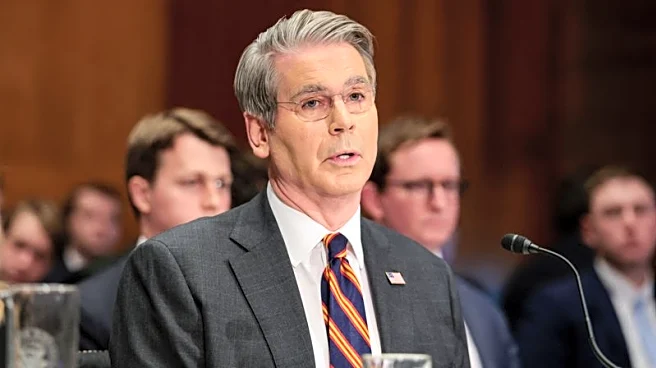What's Happening?
Recent reports indicate a mixed picture for climate philanthropy following Climate Week NYC. While climate funding has increased over the years, the pace has not matched earlier promises. Billionaires, who have been significant contributors, are reportedly stepping back from their commitments, raising concerns about the sustainability of climate funding. The Bezos Earth Fund, once a major player, has not made significant pledges recently, and Jeff Bezos himself was absent from this year's Climate Week. The Rights and Resources Initiative and Rainforest Foundation Norway report highlights that funding for forest guardians has increased since the 2021 Forest Tenure Pledge, but has declined annually since then. Youth-led climate groups have seen funding double, yet they still receive less than 1% of climate philanthropy. The One Earth report reveals major imbalances in climate finance, with 89% of funds going to energy transition, leaving nature conservation and regenerative agriculture underfunded.
Why It's Important?
The retreat of billionaires from climate philanthropy could have significant implications for global efforts to combat climate change. With major funders stepping back, the progress made in recent years could be jeopardized, potentially slowing down initiatives aimed at reducing deforestation and supporting youth climate activism. The imbalance in climate finance, with a heavy focus on energy transition, suggests that other critical areas like nature conservation are not receiving adequate attention. This could hinder comprehensive climate solutions that require a balanced approach across various sectors. The potential shortfall in funding could impact the ability to meet international climate goals, such as those set in the Glasgow pledge to end deforestation by 2030.
What's Next?
As the United Nations climate conference approaches, stakeholders may need to reassess their strategies to ensure sustained funding for climate initiatives. Philanthropies could consider diversifying their investments to cover underfunded areas like nature conservation and regenerative agriculture. There is also a call for more flexible, multi-year funding and increased involvement of youth leaders in decision-making processes. The Bezos Earth Fund, with its substantial unspent pledge, could play a pivotal role in bridging funding gaps. The upcoming conference may serve as a platform for renewed commitments and strategic partnerships to address these challenges.
Beyond the Headlines
The ethical dimension of climate philanthropy involves ensuring equitable distribution of funds, particularly to marginalized groups like Indigenous communities and youth activists. The slow progress in shifting power to these groups highlights the need for systemic changes in funding practices. Additionally, the cultural impact of climate philanthropy is significant, as it shapes public perception and engagement with climate issues. The retreat of high-profile donors like Bezos could influence public sentiment and the perceived urgency of climate action.











